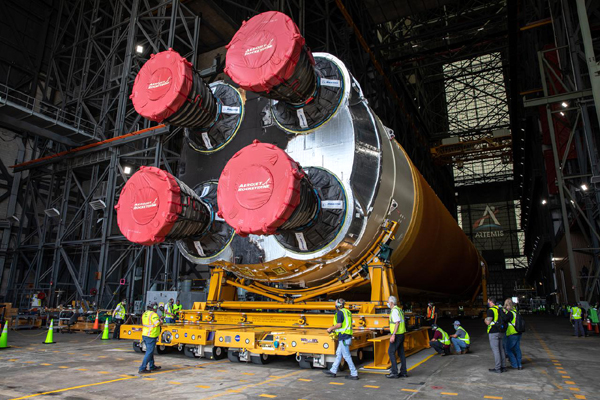
So for much of today, I've been reading online articles—like this one—about an intriguing deep space mission that's been under study by the Johns Hopkins University Applied Physics Laboratory (JHUAPL) for quite some time now. Known as the Interstellar Probe, this spacecraft would launch in the early 2030s, possibly pass by the distant dwarf planets Quaoar or Gonggong during its voyage, and reach our solar system's heliosphere boundary just 15 years after lift-off. By comparison, it took the twin Voyager robotic probes 35 years to reach the same location. And once all is said and done, the Interstellar Probe will have traveled as far as 1,000 astronomical units (the Earth is 1 astronomical unit, or 93 million miles, from the Sun) by the time its planned 50-year mission comes to an end.
It's only fitting that JHUAPL would be the organization that's doing a study on this fascinating project. It was, after all, this laboratory that built a spacecraft which gave us our first close-up glimpse of Pluto (New Horizons) and constructed another probe that traveled to the opposite end of our solar system...literally towards the Sun (the Parker Solar Probe). Scientists say that NASA's powerful Space Launch System rocket (which will soon be prepped for its maiden flight to the Moon as we speak) will make this cosmic sojourn possible. The SLS will not be launching the Europa Clipper to Jupiter's icy moon Europa as originally intended, but this launch vehicle will have been operational for about a decade by the time it's ready to hurl the Interstellar Probe to the edge of our solar system and beyond. We'll overlook the fact that SpaceX fanboys will be foaming at the mouth to get this trailblazing explorer to depart Earth on a Starship rocket instead. I prefer SLS.
JHUAPL should complete its study of the Interstellar Probe within a year...and then submit it to NASA for consideration soon afterward. Let's cross our fingers that this project gets greenlit! Happy Monday.

NASA / Ben Smegelsky

No comments:
Post a Comment